What are the best vegetables to grow indoors?
Finding the best vegetables to grow indoors was not as easy as I thought. Some require extensive care, others are prone to pests, and lots are just not simple & quick enough to grow.
That’s why I created a list of the 10 Best Vegetables to Grow indoors!
This ultimate guide will give you the best vegetables to grow, why you should grow them, and even how to grow them.
10 Best Vegetables to Grow Indoors
#1. Lettuce
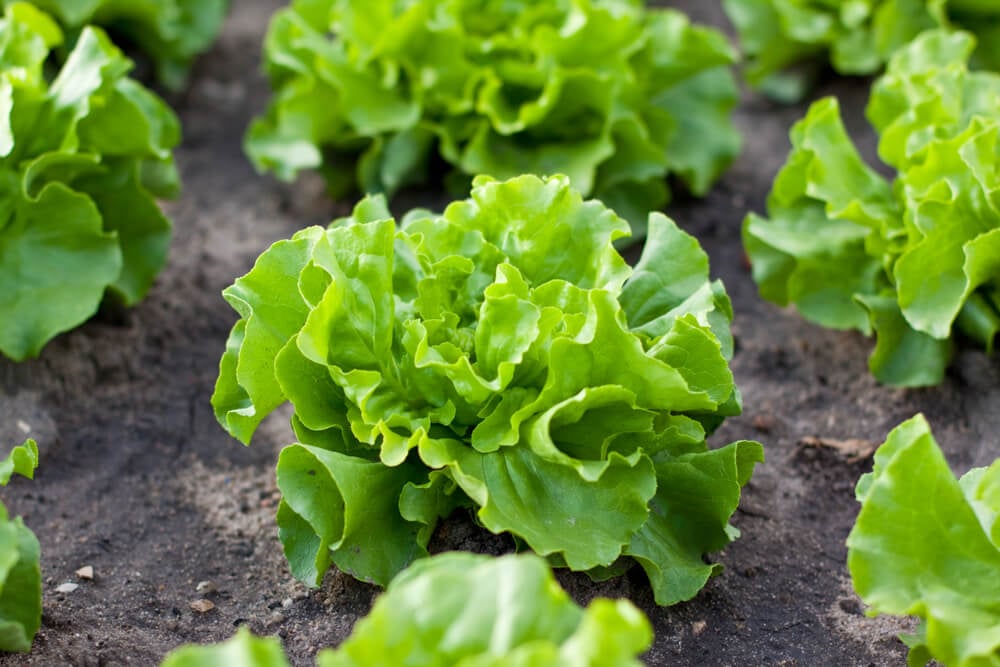
Popular Varieties: Butterhead, Boston, Loose Leaf
Why Grow Lettuce Indoors?
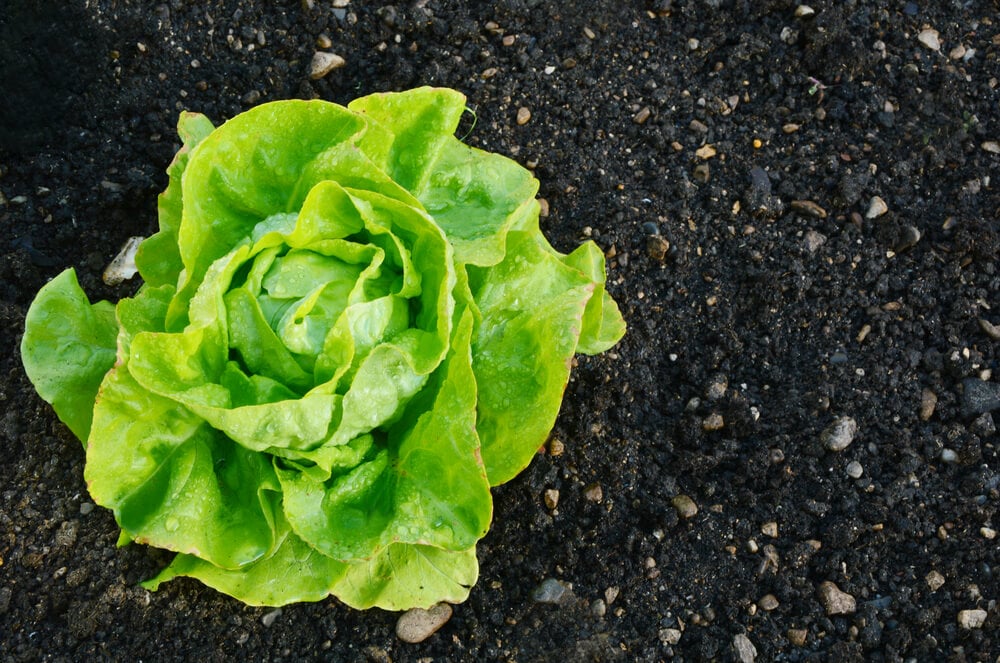
Cold Hardy:
- Lettuce thrives in any temperature indoors including cooler basements. Unlike other vegetables, this plant can grow even when temperature is not regulated.
Low-Maintenance:
- Lettuce may be the easiest vegetable to grow. You do not need to fertilize it, only need to water it once a week, and it can be planted in any soil.
Perfect for ANY Garden:
- Lettuce is perfect for urban gardening and even gardeners with little space. It is great in gardening containers, raised garden beds, and even indoors.
Harvested All Year:
- Lettuce can be harvested all year. The more you harvest lettuce the more it will grow.
THESE Could Harm Your Lettuce
Pests:
- Mice, mites, or anything that can get indoors can harm your lettuce. If left unprotected these pests will eat your vegetable before it can even grow.
Slugs:
- You’ll most likely find slugs on your lettuce in spring or fall when the weather is cool or wet if you grow your lettuce in a greenhouse. If you plant it in the shade where the soil is damp you should expect slugs too.
Extreme Heat:
- While rare indoors, this can cause your lettuce to flower and become inedible. Make sure to plant your lettuce in partial shade to avoid this.
Additional Resources
Learn How To Grow Lettuce HERE
#2. Kale
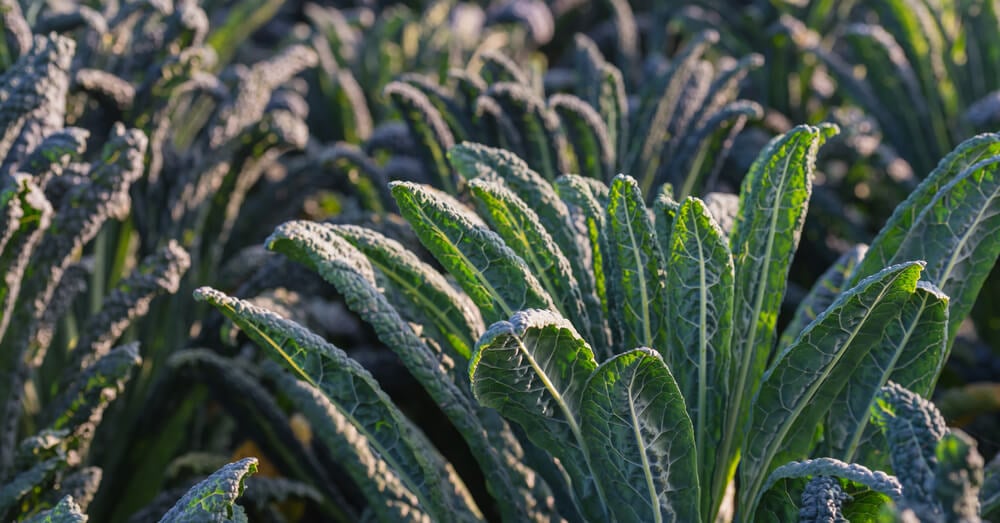
Popular Varieties: Curly, Lacinato, Red Russian, Ornamental
Why Grow Kale Indoors?
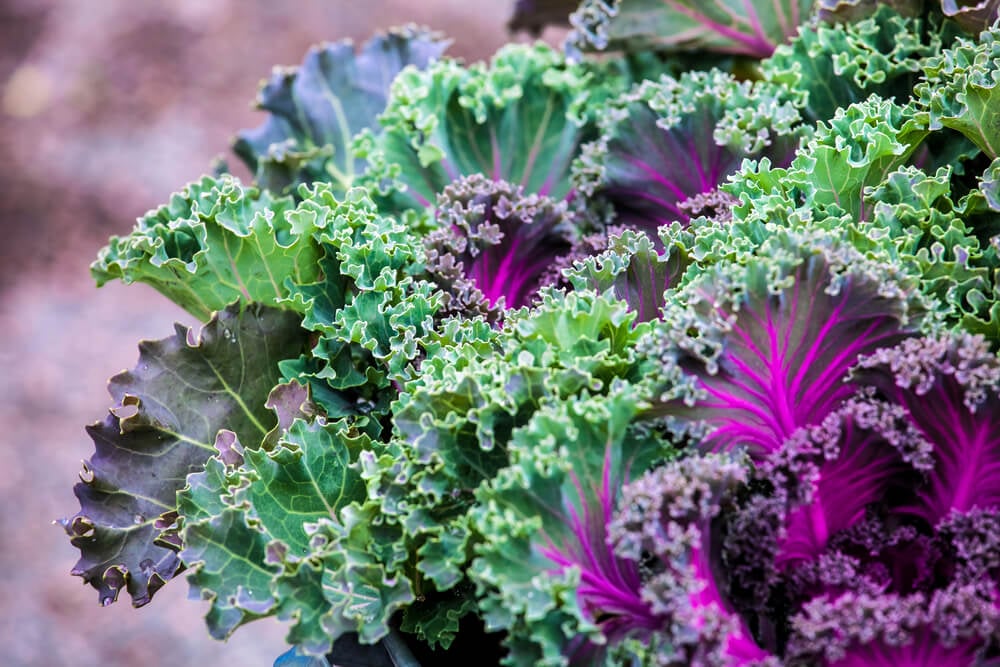
Cold Hardy:
- Kale is the hardiest vegetable when it comes to indoors that are cold. Unlike any other vegetable on this list, Kale can be grown throughout the entire year.
Ornamental:
- Kale is the only vegetable on this list that can also be considered an ornamental plant. This means it can add color, features, and beauty to any type of garden.
Perfect in Pots:
- If there is any vegetable that can be grown in gardening pots indoors it’s kale. This is one of the most adaptive vegetables, making it perfect for beginner gardeners indoors.
THESE Could Harm Your Lettuce
Aphids
- Like many other vegetables, aphids are one insect you don’t want. Aphids are especially prevalent indoors sometimes and can stunt or kill your kale.
Extreme Heat
- Like lettuce Kale does not tolerate extreme heat. After just a week in temperatures over 90 degrees, Fahrenheit and direct sunlight Kale can flower and become inedible.
Additional Resources
Learn How To Grow Kale HERE
#3. Peas
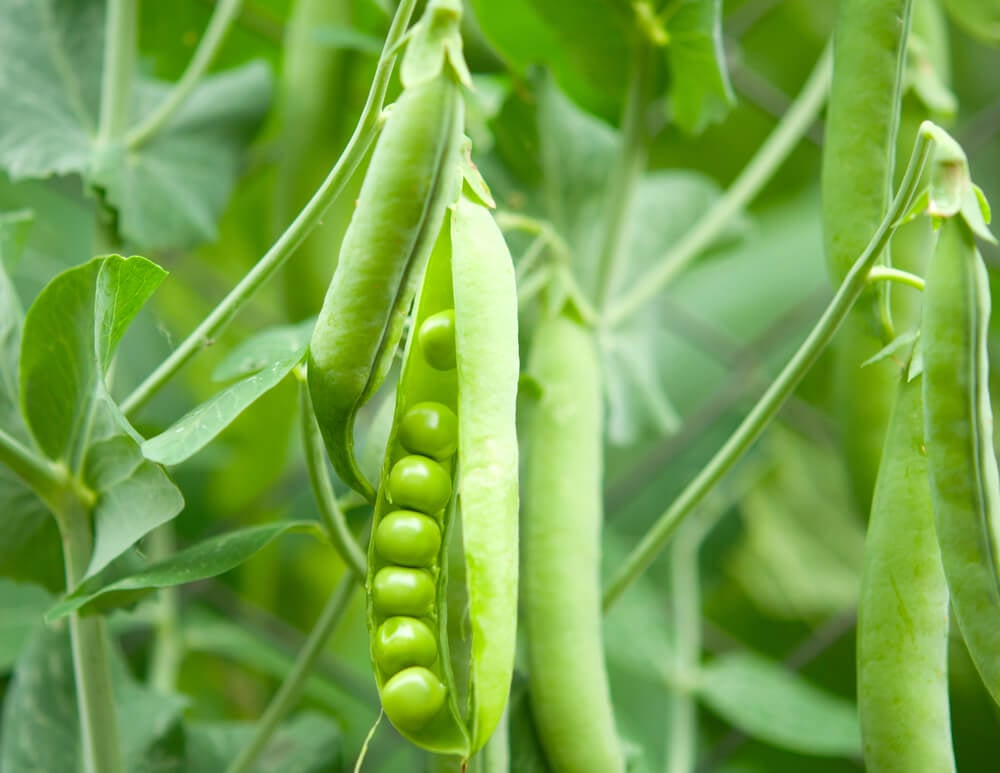
Popular Varieties: Snow peas, sugar snap, English peas
Why Grow Peas Indoors?
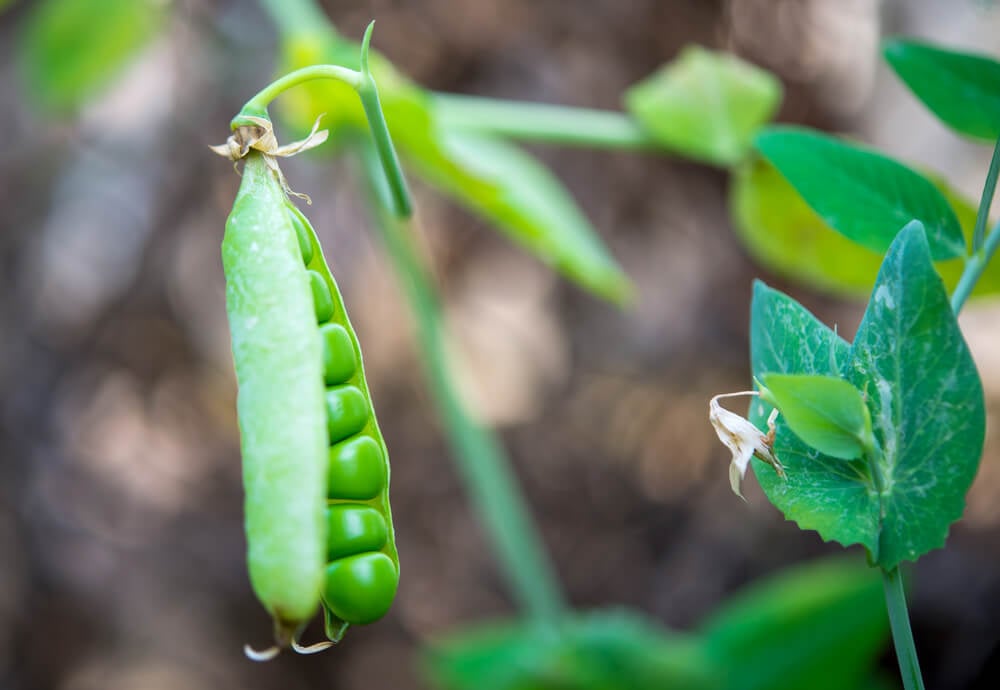
Thrives in Cold:
- While some vegetables are cold-hardy, Peas thrive in cold weather. If you want the tastiest peas you should grow them in winter and early spring.
Great for Vertical Gardening:
- Peas are one of the few vegetables that are perfect for vertical gardening. Vertical Gardening is popular in the cities of and even in the suburbs where land for horizontal growing is scarce.
Perfect in Raised Garden Beds:
- Peas do not need much room. They also grow great among other vegetables and plants. This makes it perfect for raised garden beds, which is one of the most popular techniques of gardening.
THESE Could Harm Your Peas
Pests:
- Deer, Rabbits, & Squirrels LOVE start to come out and become hungry in spring. One of the first plants they eat is peas. Whether protected or unprotected pests pose a risk to growing peas.
Any temperature but cold:
- While most vegetables grow in summer heat, peas cannot. Any temperature, but cold will pose a risk to growth & tastiness.
Additional Resources
Learn How to Grow Peas HERE
#4. Tomatoes

Popular Varieties: Cherry, Beefsteak, Brandywine
Why Grow Tomatoes Indoors?
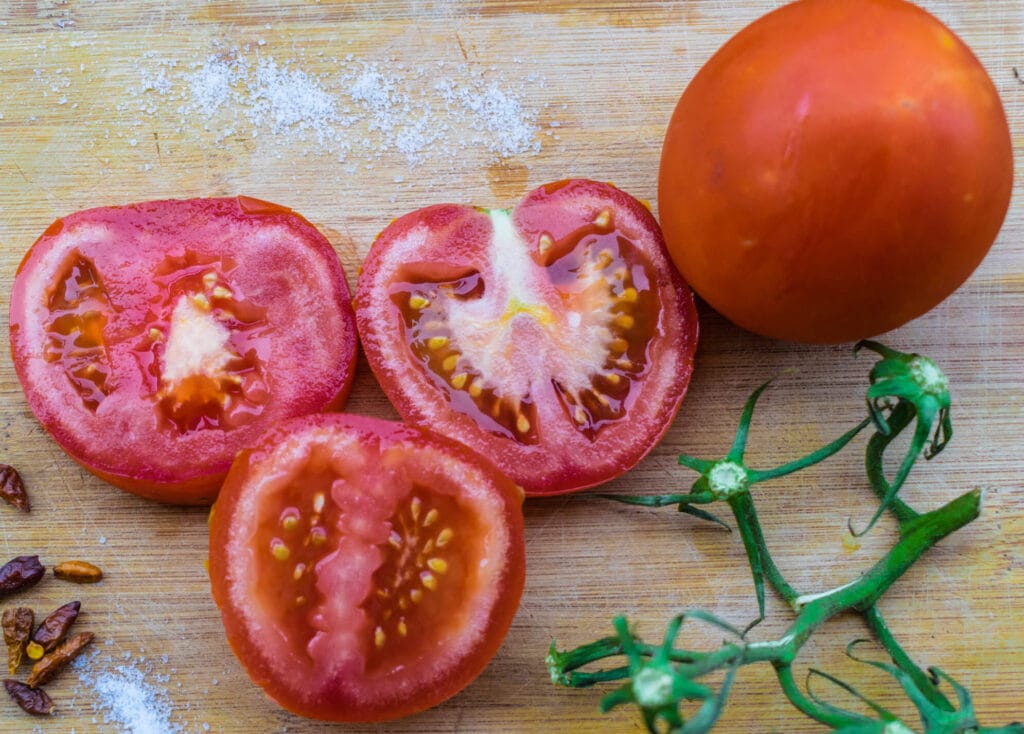
Thrives in the heat:
- As your house gets warmer tomatoes to continue to get bigger and more plentiful. Look no further for a low-maintenance vegetable.
Great for Vertical Gardening:
- Tomatoes are considered a vine vegetable. Because of this, you can train them to grow vertically, which is perfect for gardeners who have little space.
Perfect in All Types of Garden:
- Some vegetables only do well in the ground. Not tomatoes. You can grow them in containers, window boxes, raised garden beds, and even in poor soil.
THESE Could Harm Your Tomatoes
Insects:
- Tomatoes are one of the most insect-prone vegetables. Aphids, fruit worms, and even stinkbugs love eating them. If you wait too long to harvest expect all of these insects to become a problem.,
Diseases:
- Tomatoes are also one of the most disease-prone vegetables, especially heirloom variants. Expect blight, fungus, and buckeye rot to affect your plant in the later summer months (even if you properly care for them).
Additional Resources
Learn How to Grow Tomatoes HERE
#5. Cabbage
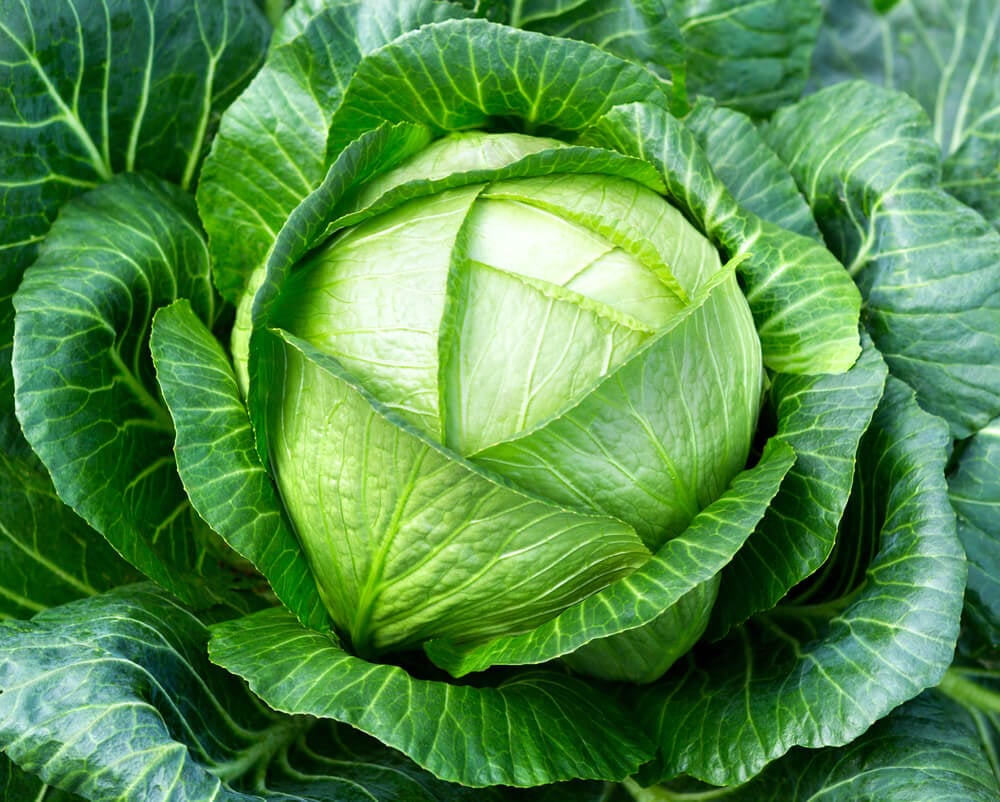
Popular Varieties: red cabbage & white pointed cabbage
Why Grow Cabbage Indoors?
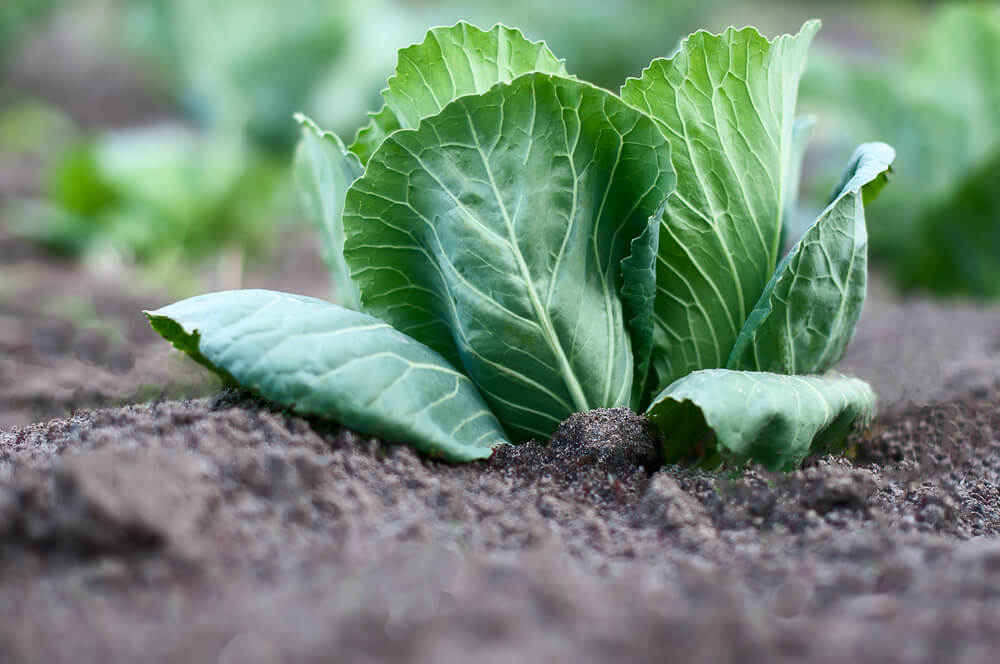
Thrives in the heat & cold:
- While some vegetables are cold-hardy, cabbage thrives in cool spring and fall weather. If you want the tastiest cabbage you should grow them in early spring and harvest them before the heat of the summer.
THESE Could Harm Your Cabbage
Birds, Squirrels, Rabbits, & Chipmunks:
- Deer, Rabbits, & Squirrels LOVE eating cabbage leaves during early summer. Whether protected or unprotected pests pose a risk to growing cabbage indoors.
Insects:
- Out of all the vegetables on the list, cabbage is most prone to insect attacks. Aphids, Mites, and many other bugs can commonly attack leaves and the head of the cabbage.
Additional Resources
The biggest tip I have when growing Cabbage in Arizona is to give your vegetable enough space. Most gardeners plant cabbage too close to one another, inhibiting the size and flavor of your vegetable.
#6. Cucumbers
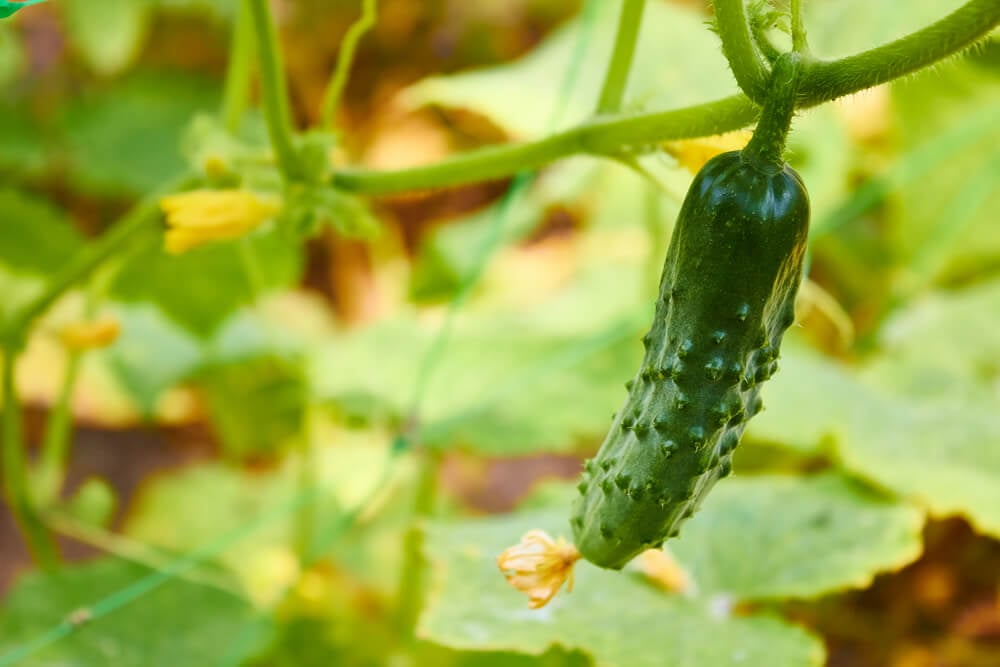
Popular Varieties: Pickling, Armenian, Persian, English
Why Grow Cucumbers Indoors?
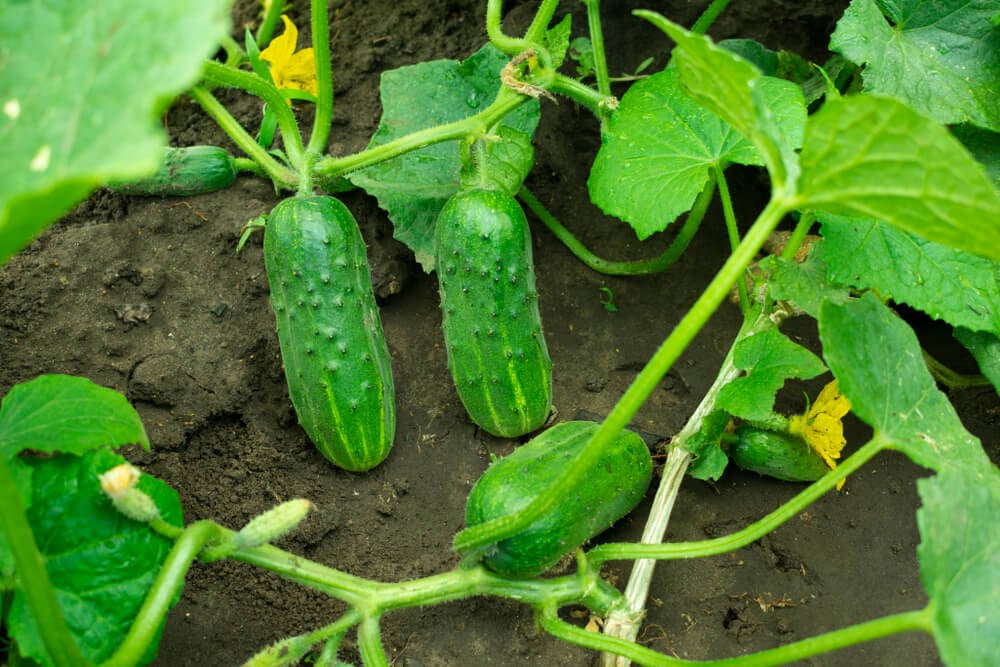
Thrives in the heat & cold:
- Cucumbers are another hardy vegetable. Some varieties can be grown in cold weather and some can be grown in warmer weather.
Lots & Lots of Harvest:
- Cucumbers are one of the few vegetables that you can harvest from late spring to late fall. This means you will be able to enjoy it all year long.
Amazing Cross-Pollinator:
- Cucumbers are another vegetable to help to cross-pollinate other vegetables. Plant cucumbers next to tomatoes, beans, carrots, and squash for even more vegetables.
THESE Could Harm Your Cucumbers
Birds & Rodents:
- These pests will generally not harm your actual cucumber vegetables. What they will do though is immediately eat cucumbers flowers if you do not protect them with netting or rodent spray.
Little Space:
- Cucumbers require lots of room to grow. If you try growing it in gardening pots, raised garden beds, or small gardens there is a chance that it will take over other vegetables or just not produce the harvest you want.
Additional Resources
Learn How to Grow Cucumbers HERE
#7. Peppers
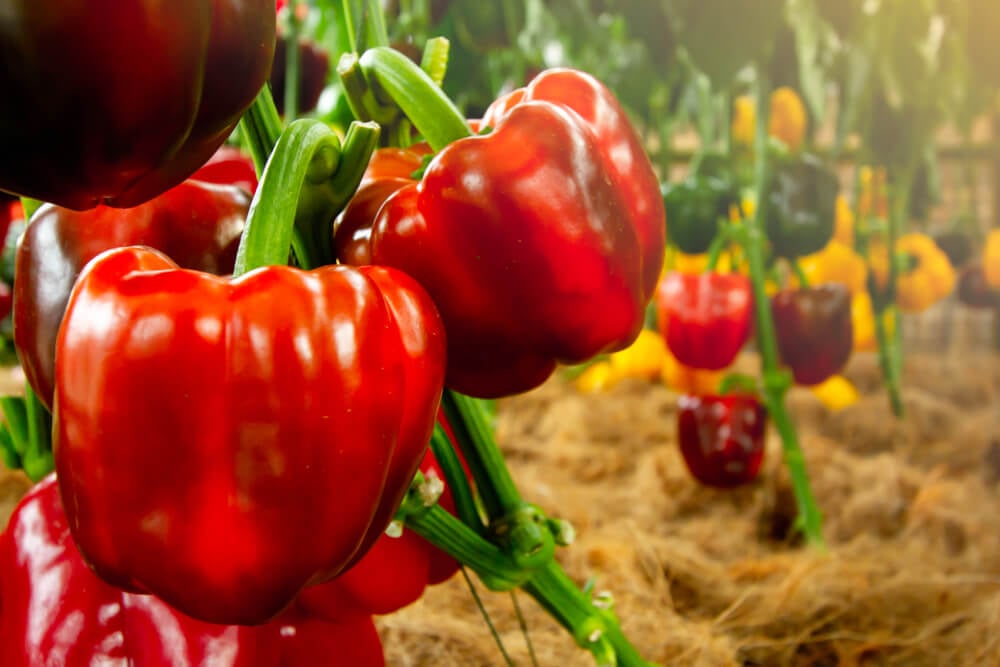
Popular Varieties: Bell, Jalapeno, Habanero
Why Grow Peppers Indoors?
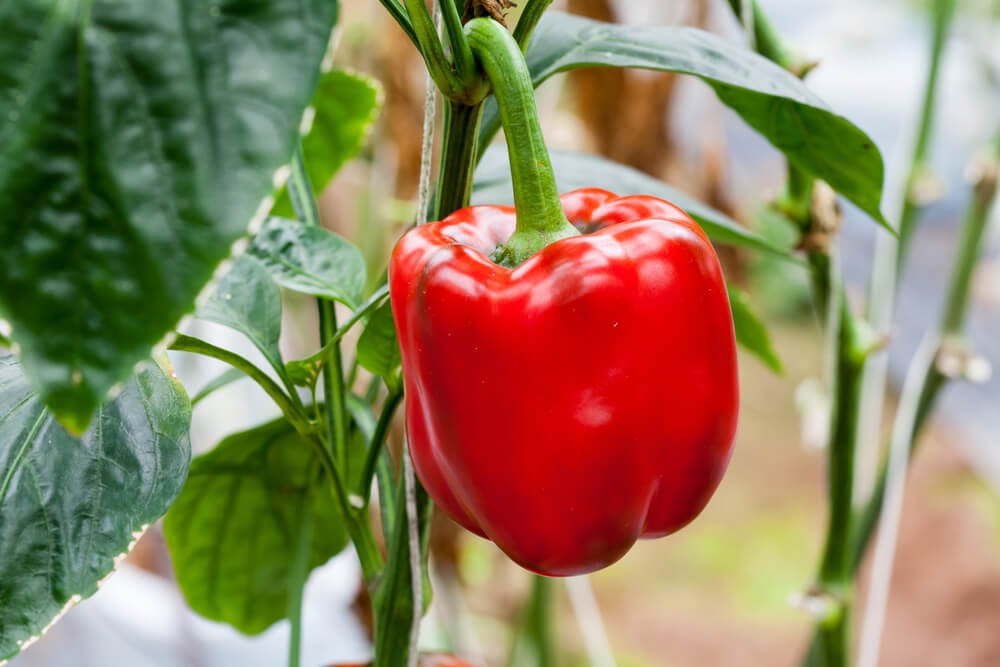
Loves heat:
- These low-maintenance vegetables love the heat. The hotter the summer the better they do. And the longer summer goes on the more peppers you will have.
Perfect for Vertical Gardening:
- Peppers are one of the vegetables you may not think of when it comes to vertical gardening, but they do just as great as others. This makes it perfect for small spaces and even in pots.
Fits in ALL Gardens:
- Regardless of whether you live peppers grow great in all types of houses. I especially love growing them in raised garden beds and garden containers.
Insect Hardy:
- If you have trouble with insects infecting your vegetables then you should plant Peppers. This vegetable is one of the few that you won’t have to worry about insect infestation all year.
THESE Could Harm Your Peppers
Diseases
- Peppers can be prone to diseases in late summer. Expect blight, fungus, and rot to affect your plant later in the season near the time you will harvest your peppers.
Additional Resources
Learn How to Grow Peppers HERE
#8. Green Beans
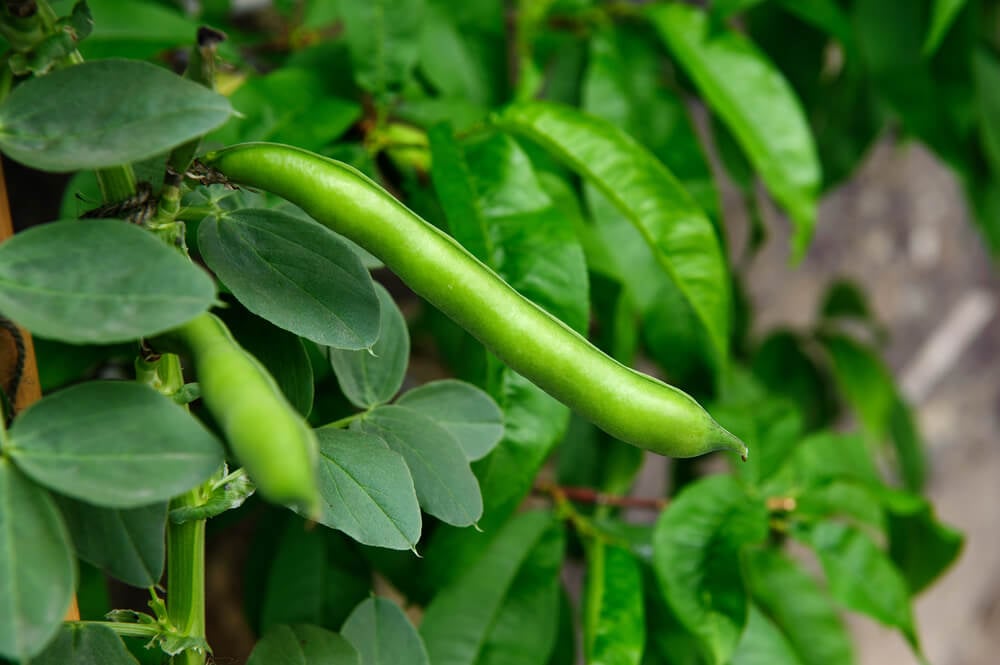
Popular Varieties: Bush & Pole
Why Grow Green Beans Indoors?
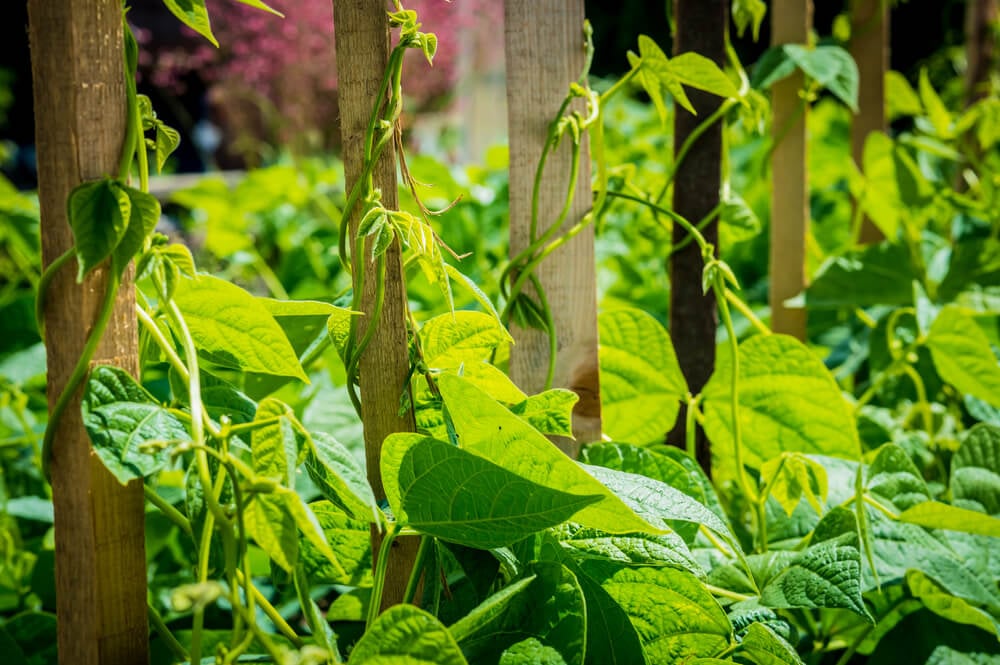
Thrives in Droughts:
- Unlike other vegetables, Green Beans do not require a lot of water to grow, flower, and bloom into a crop that can be harvested more than once. This is great for the unusual dry summers.
Great for Vertical Gardening:
- If you want a vegetable that grows up a pole then no look further than the pole green beans. This green bean was created specifically for vertical gardening.
THESE Could Harm Your Green Beans
Insects:
- Green Beans are one of the few vegetables that require constant insect control. Insects can quickly destroy your green beans’ leaves before flowers grow and can destroy the vegetable itself if not properly cared for.
Cold Weather:
- If the weather drops below 50 degrees Fahrenheit expect your green beans to not grow, become stunted, and potentially even die. This means you should grow your vegetable well after the last frost.
Additional Resources
Learn How to Grow Green Beans HERE
#9. Radishes
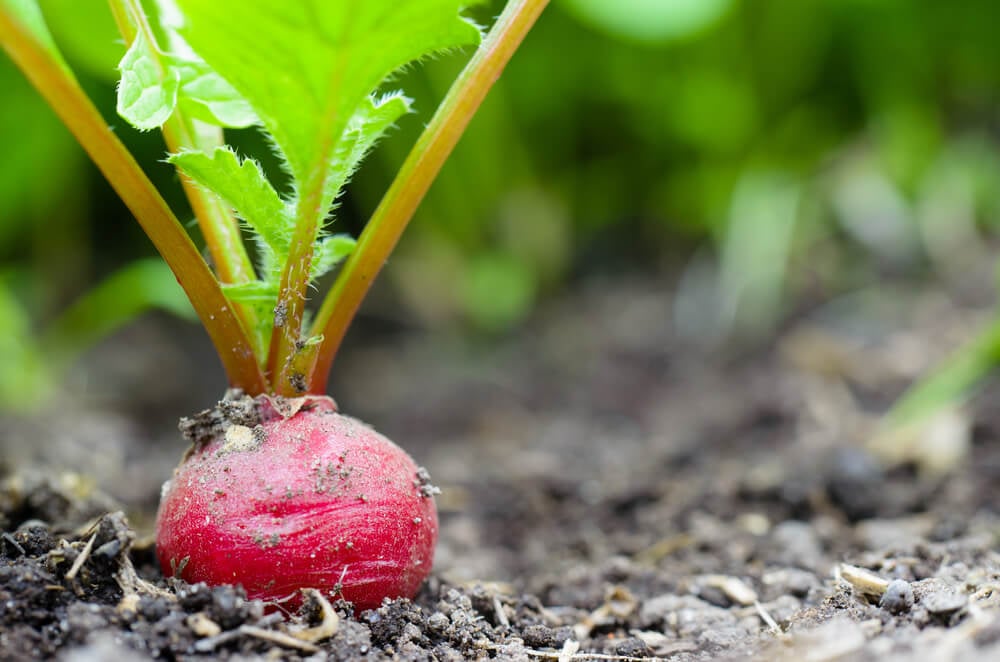
Popular Varieties: French, Tarzan, Stela
Why Grow Radishes Indoors?
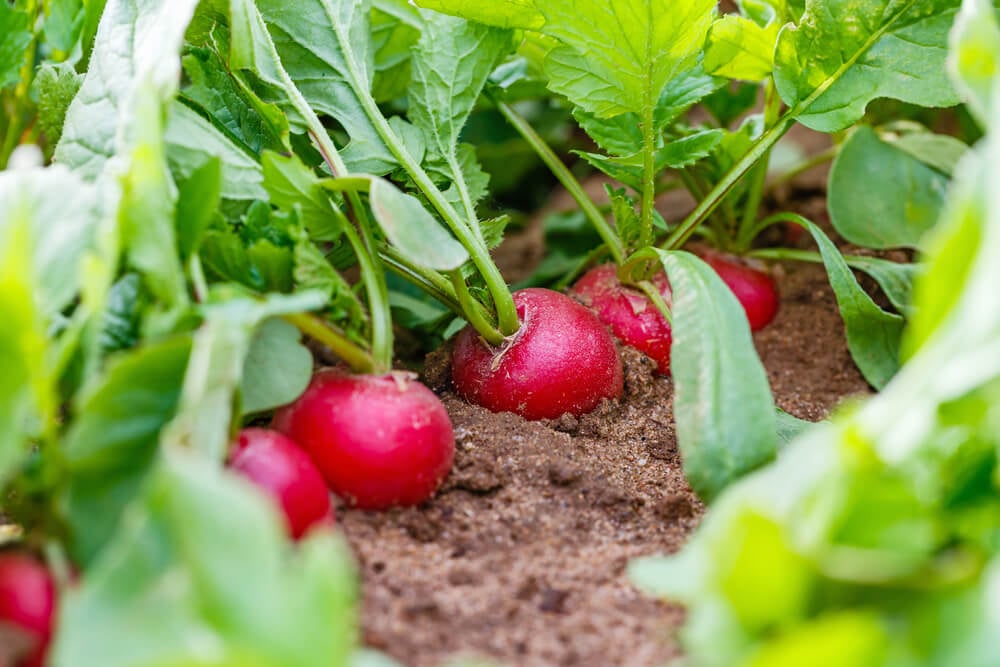
Thrives in Droughts:
- Like Carrots and other root crops, Radishes require little water, sunlight, and even pest care. This makes it great for full-sun and partial-sun garden areas.
Cold Weather:
- Radishes are one of the few vegetables that can survive temperatures slightly below frosts. This means you can plant, grow, and harvest your radishes in the early spring, late fall, and even winter!
THESE Could Harm Your Radishes
Clay:
- Almost all of the vegetables on this can grow in any type of soil. The one exception is radishes. Radishes need loamy and small particle soil. If it is planted in clay soil it will not grow at all.
Additional Resources
The biggest tip I have when growing Radishes indoors is to give your vegetable enough space. Most gardeners plant radishes or radish seeds too close to one another, inhibiting the size and flavor of your vegetable.
#10. Asparagus
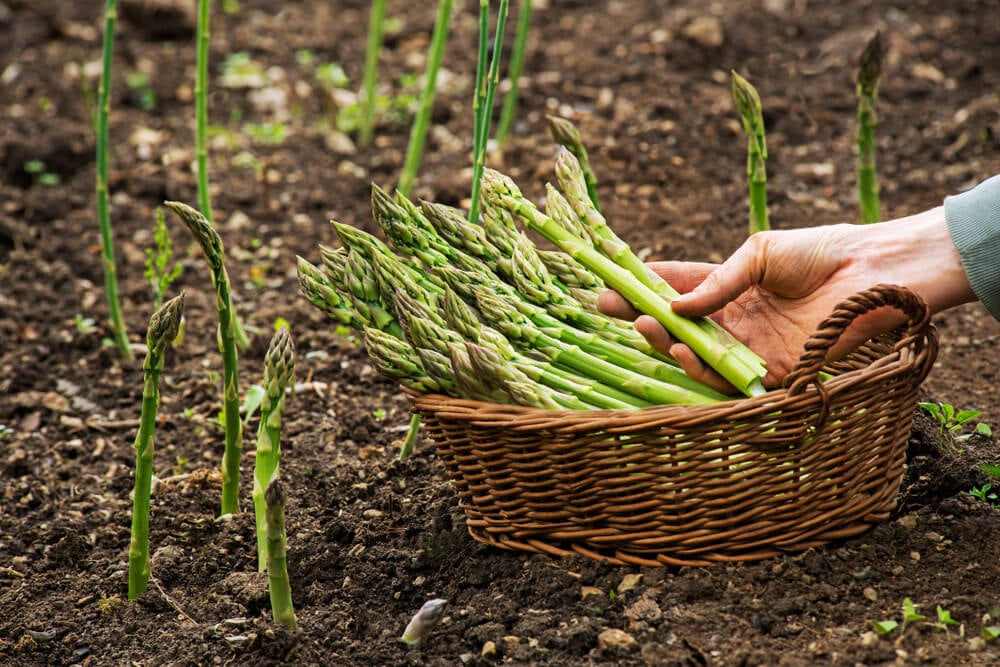
Popular Varieties: White, Green, & Purple
Why Grow Asparagus Indoors?
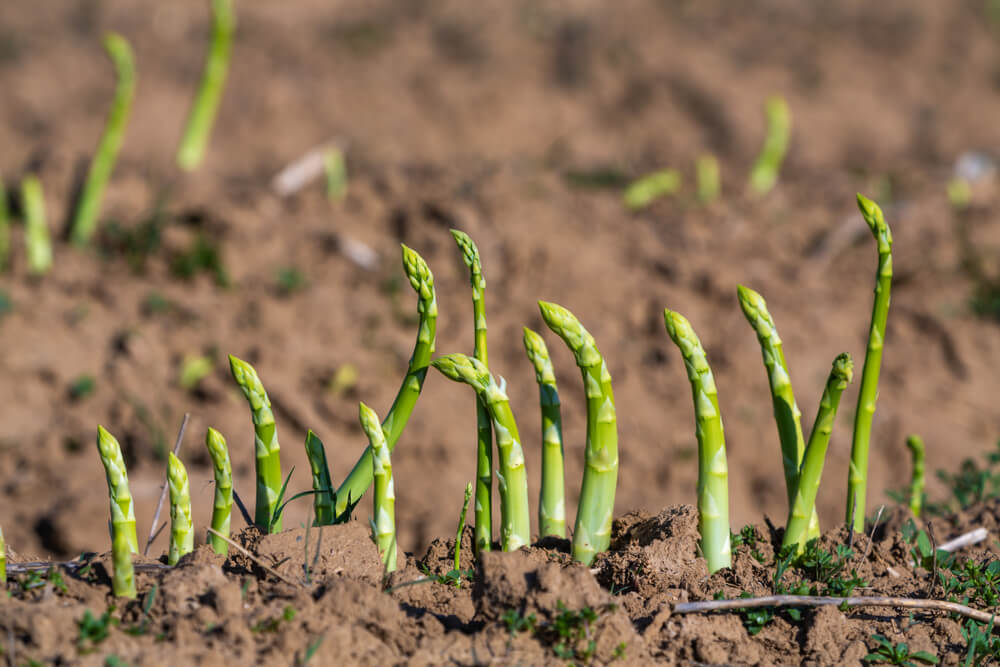
Thrives in Droughts:
- Unlike other vegetables, Asparagus does not require a lot of water to grow, flower, and bloom into a crop that can be harvested throughout summer. This is great for the unusual dry summers and even wet ones.
Great for Perennial Gardens:
- If you want a vegetable that grows every year with little to no maintenance then asparagus is perfect for you. The best part is this can be grown among other vegetables in a small garden.
THESE Could Harm Your Asparagus
Insects
- Asparagus is one of the few vegetables that require constant insect control. Insects can quickly destroy your asparagus when it grows and if you leave it in the ground too long.
Additional Resources
The biggest tip I have when growing Asparagus in Arizona is to plant them in an area of your garden you plan on dedicating to them every year. Not only this, but it will be beneficial to keep them among other animal repellent plants to properly protect them.
Common Growing Factors of Indoor Vegetables

As a reminder, the below factors are common for the Best Vegetables to Grow Indoors:
- Thrives in Heat & Drought
- Thrives in Cold
- Can Grow in Vertical Gardens
- Hardy against Pests & Insects
- Can be planted in ALL Types of Garden
- Great Cross-Pollinator